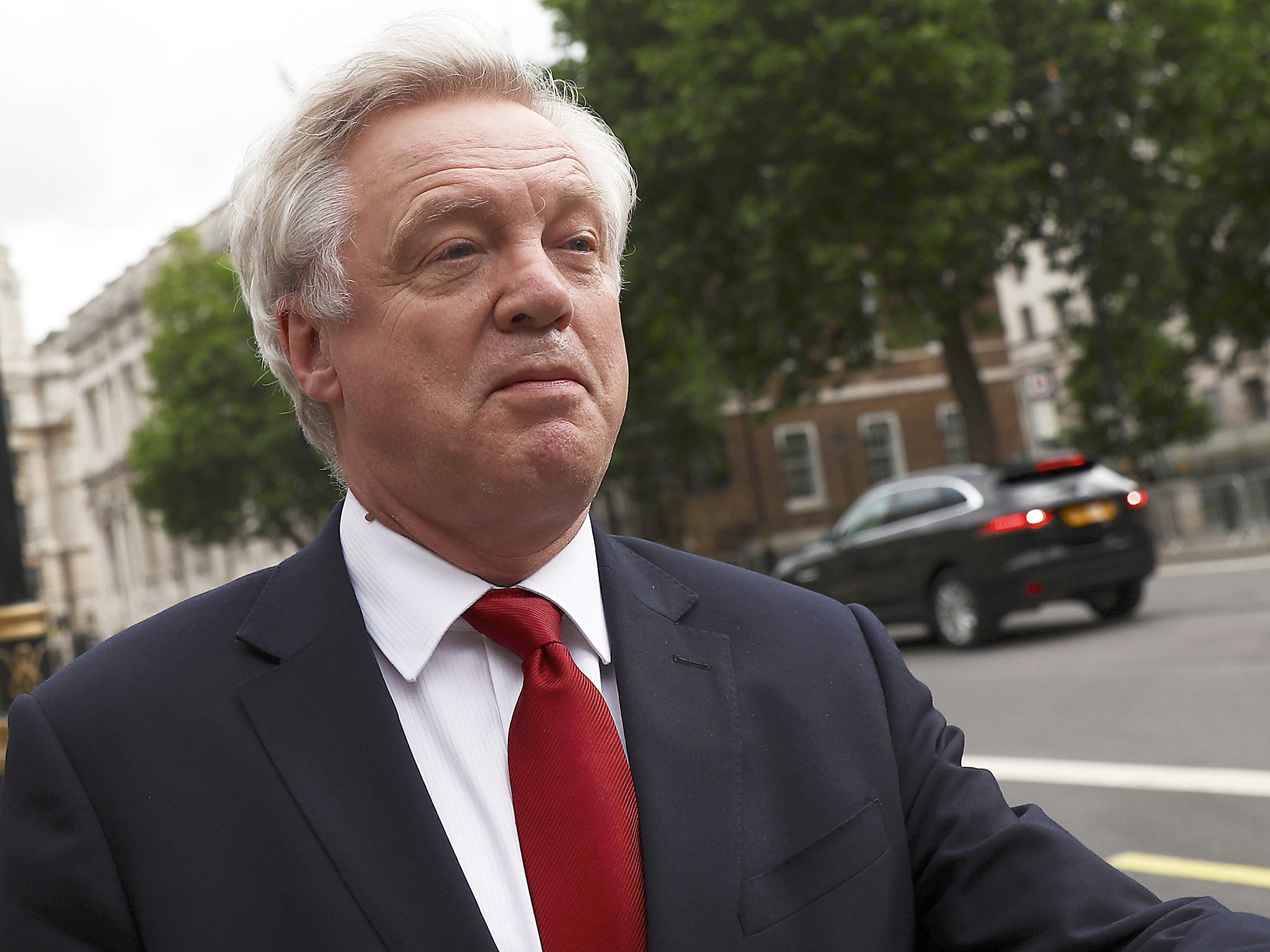We predicted Brexit would happen because we thought differently – now we have some advice about the Brexit talks
Some say we can replace the German trade with Commonwealth trade anyway. But over 50 per cent of the UK’s trade is with or through Europe and less than 10 per cent is with the Commonwealth. Hence a 10 per cent drop in EU trade requires a 50 per cent increase in Commonwealth trade


Many years working in law, diplomacy, and, yes, even the military have taught us that in negotiations and operations, defeat is certain if one thinks of only one’s own perspective.
“Time spent in reconnaissance is seldom wasted” is a phrase well known to military planners. Likewise, good lawyers and diplomatic negotiators know what their side wants out of a negotiation, so spend most time thinking about the other side’s negotiating position and possible strategies. They look to the other side’s strengths and constraints to determine how to get the other side to agree to the outcome our side wants.
With the Brexit talks looming, have the British Government, the British people and British business thought enough about the other side’s view, or have we focused too much on our own view? Are we ready?
Well, first there was the Brexit referendum, then summer, then Christmas and now the election and its aftermath. British politicians have had to lead the British people in discussions about “what Britain could look like” and “our negotiating position”, often assuming our negotiating position will be the “negotiated outcome”, ignoring the dynamics on the “other side”.

At a recent legal event, we heard that Germany has billions of euros of insurance underwritten in Britain every year. “Therefore,” the speaker said, “Germany has to give us a fair run as the Germans can’t afford to lose that business.” It is an optimistic British view but that is where the discussion stopped.
If the discussion had continued, thinking from the German side, another option would look viable. We all know that large businesses such as the insurance companies are looking at a Plan B option of moving at least some of their business to mainland Europe should Brexit negotiations not protect “passporting”. We know this because the businesses have said that this is what they are doing.
The Germans know this too.
Wouldn’t it be a viable position for the Germans to think, “If we play hard-ball then we trigger the companies’ Plan B, they move to Europe and then some of that business will come to Frankfurt?”
Likewise, some say we can replace the German trade with Commonwealth trade anyway. But more than 50 per cent of the UK’s trade is with or through Europe, and less than 10 per cent is with the Commonwealth. Hence a 10 per cent drop in EU trade requires a 50 per cent increase in Commonwealth trade.
The British view seems to be: of course the Commonwealth will trade more with us. But look at it from the Commonwealth perspective. Where does that extra trade come from?

How much of existing Commonwealth trade exists because Britain is the front door to Europe? More importantly, how much Commonwealth trade is being held back because of EU membership and could start as soon as Britain leaves the EU?
Take Australia, for example. The five main parts of their economy are resources, agriculture, tourism, financial services and international education. Britain doesn’t buy Australia’s iron ore, it doesn’t buy much Australian agriculture, Aussies already flock here as tourists, and the financial services and education sectors compete more than collaborate. From where does the trade growth come?
The apron strings of the Commonwealth countries looking back to the motherland were cut many years ago and cannot be re-stitched easily. We need to start thinking in the Commonwealth’s shoes, not just ours. In order to boost trade with the Commonwealth, what do we need from EU negotiations to look more attractive to the Commonwealth? What are Commonwealth countries thinking?
If one looks at other people’s perspectives more than one’s own, then surprising opportunities can arise.
As the founders of Brexit Advisory Services, we took the opposite side in the Brexit debate: one of us is a strong Remainer, the other a strong Brexiteer. We sit on opposite sides of the political fence but we listen to and respect each other’s perspectives – a skill many people are losing in these days of echo chambers.
Because we listened to each other’s perspectives and campaigning experiences, we were among the few who predicted a Brexit win. Not only did we predict it, we prepared for it by doing things such as buying domain names like BrexitAdvisoryServices.co.uk.
We understood that while large businesses have the inherent capacity to lobby government, small business needs help. We only saw this opportunity to help small businesses because we each understood and respected the other’s perspective.
Britain needs a similar thought process.
With Brexit negotiations starting, perhaps British discussions have been too inwardly focused. We are not yet searching for the opportunities that will arise when looking at other people’s perspectives, be that the German perspective, the Australian perspective or even understanding the dynamics of our own small businesses.
To help the Government, our people and businesses, particularly small businesses, we must help out by sharing multiple perspectives of both opportunities and threats. Today we are building Britain in a new image. Are we ready?
Donal Blaney is founder of Griffin Law and a Conservative Party activist. Andrew MacLeod is a visiting Professor at Kings College Policy Institute and formerly and Australian Labor Party activist. Together they co-founded Brexit Advisory Services
Join our commenting forum
Join thought-provoking conversations, follow other Independent readers and see their replies
Comments
Bookmark popover
Removed from bookmarks